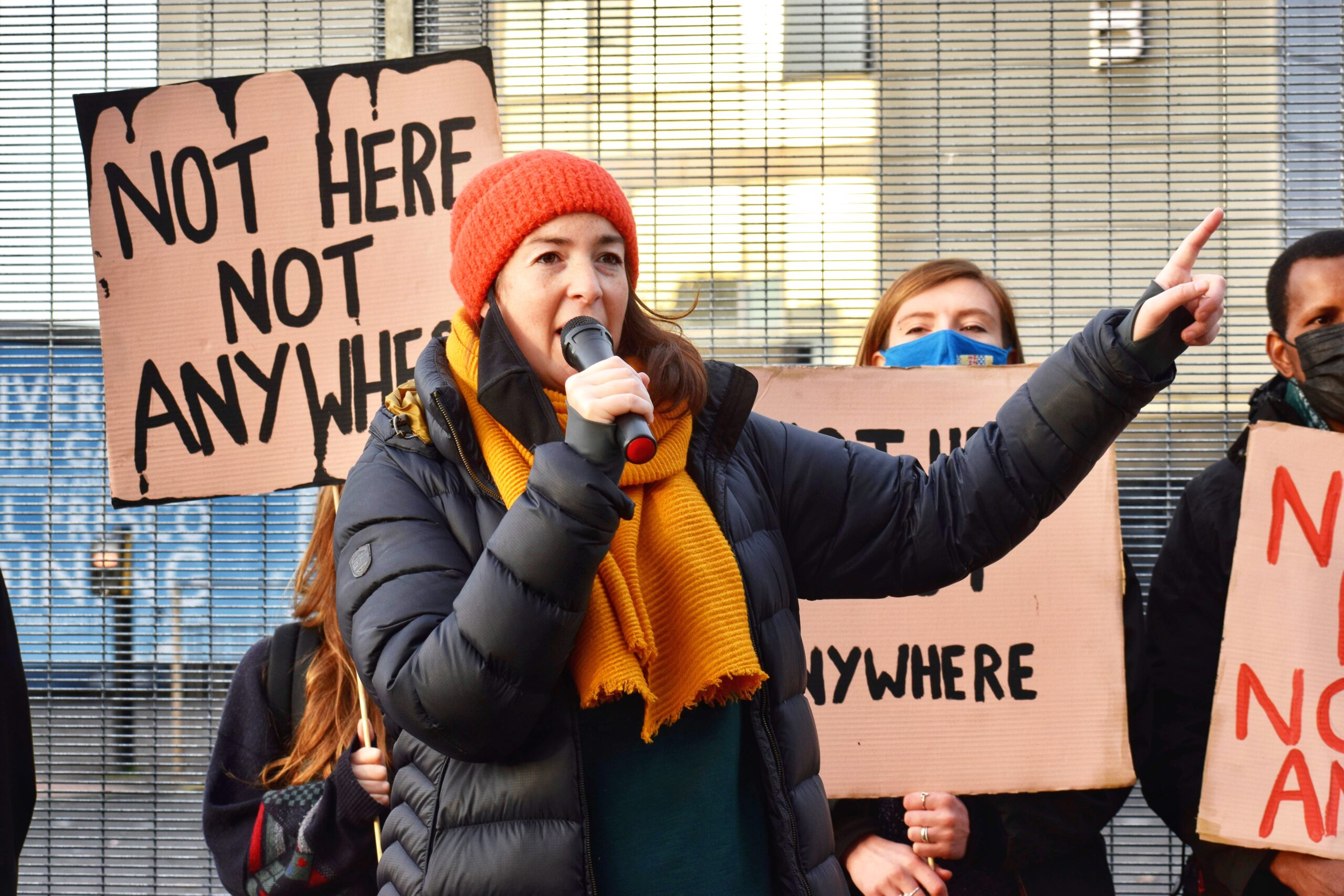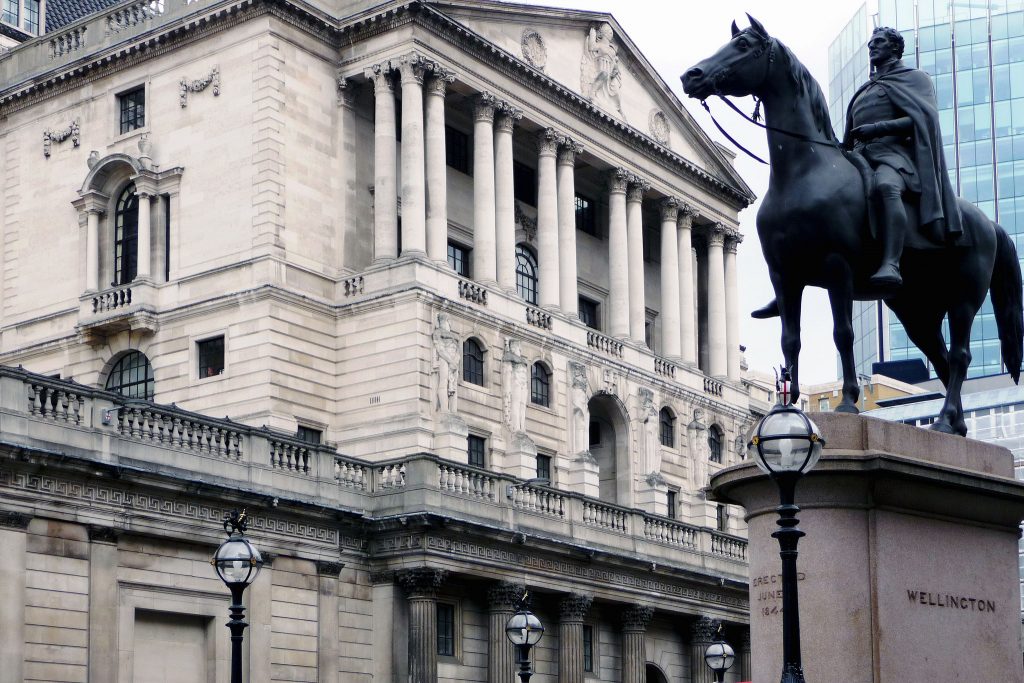
Why is the Bank of England worried about climate change?

- Guest blog by Joel Benjamin, Community Re:invest
The Bank of England (BoE) has a reputation for leading debates among financiers about emerging ethical, social and environmental risks.
In the last few years the BoE has made a number of major contributions to the debate around the economic and financial risks associated with climate change, raising the profile of the carbon bubble.
The carbon bubble is the value of the coal, oil and gas that fossil fuel companies plan to burn, but is in fact ‘unburnable’. Since there are far more fossil fuels on companies’ books than can be burnt if globally agreed limits on carbon emissions are to be achieved, this ‘unburnable carbon’ represents a financial bubble ready to burst.
As recently as July 2014 BoE Governor Mark Carney expressed little concern about the financial risks associated with the carbon bubble in a letter to the UK Parliament’s Environmental Audit Committee. However a few months later, as policy demands ahead of the UN Climate Change Conference in Paris took shape and global oil prices weakened, the BoE position shifted considerably.
Climate change as a serious threat
Mark Carney warned in October 2014 the “vast majority of [fossil fuel] reserves are unburnable” if climate change is to be limited to ‘safe’ levels as pledged by the world’s governments.
In March 2015, the BoE warned insurance companies which underwrite financial markets risked taking a “huge hit” if their investments in fossil fuel companies are rendered worthless by action on climate change.
Paul Fisher, deputy head of the BoE’s Prudential Regulation Authority (PRA) supervising banks and insurers – tasked with avoiding systemic risks to the economy said in a speech to the 2015 Insurers Summit:
“We are seeing evermore frequent ‘record’ weather events; storms; floods; hotter summers; intense rainfall.
“Insurers, as long term investors, are also exposed to changes in public policy as this affects the investment side. One live risk right now is of insurers investing in assets that could be left ‘stranded’ by policy changes which limit the use of fossil fuels.
“As the world increasingly limits carbon emissions, and moves to alternative energy sources, investments in fossil fuels and related technologies – a growing financial market in recent decades – may take a huge hit. There are already a few specific examples of this having happened.”
The full report from the BoE’s Prudential Regulatory Authority (PRA) titled The Impact of Climate Change on the UK Insurance Sector, released September 2015, stated:
“Changes in sentiment and financial innovation, such as the ‘hedging’ of carbon risk or fossil fuel divestment, can impact asset values. For example, the fossil fuel divestment campaign is an extant social movement that has managed to induce changes in investor behaviour among private and public wealth owners alike, such as university endowments, public pension funds, ultra high net worth individuals, or their appointed asset managers.
“While levels of divestment appear reasonably limited at this stage, the campaign may have the potential to trigger changes in market norms. Additionally, emerging research suggests preferences can also rapidly shift due to changes in market sentiment relating to expectations around climate risk.”
The report also mentioned that those who manage funds on behalf of others (known as ‘fiduciaries’) could be challenged if they failed to take these risks seriously:
“In future, directors and officers may face both regulatory and shareholder action if they fail to adequately consider, misrepresent or conceal climate change-related risk.”
This presents a major threat to the practice of oil companies like Exxon who, it was recently uncovered, identified climate change risks to their business model and chose to conceal them instead of acting decisively.
What risks does the Bank of England recognise?
The BoE Prudential Regulatory Authority paper covers a number of ways that climate change can affect financial stability:
- Physical risks: impacts insurance liabilities and the value of financial assets that arise from climate- and weather-related events, like floods and storms damaging property or trade.
- Liability risks: impacts that could arise tomorrow if parties who have suffered loss or damage from the effects of climate change seek compensation from those they hold responsible. Such claims could come decades in the future, but have the potential to hit carbon extractors and emitters – and, if they have liability cover, their insurers – hardest.
- Transition risks: financial risks resulting from the process of adjustment towards a low-carbon economy. Changes in policy, technology and physical risks could prompt a reassessment of the value of a range of assets as costs and opportunities become apparent.
If we are to avoid dangerously destabilising the global climate we need to keep emissions to a carbon budget. It has been estimated that at least 80% of known fossil fuel reserves need to stay in the ground to keep inside our global carbon budget.
According to Mark Carney, carbon budgets pose a risk to financial assets because:
“If that estimate is even approximately correct it would render the vast majority of reserves “stranded” – oil, gas and coal that will be literally unburnable without expensive carbon capture technology, which itself alters fossil fuel economics.
“The exposure of UK investors, including insurance companies, to these shifts is potentially huge.
“19% of FTSE 100 companies are in natural resource and extraction sectors; and a further 11% by value are in power utilities, chemicals, construction and industrial goods sectors. Globally, these two tiers of companies between them account for around one third of equity and fixed income assets.
“On the other hand, financing the de-carbonisation of our economy is a major opportunity for insurers as long-term investors. It implies a sweeping reallocation of resources and a technological revolution, with investment in long-term infrastructure assets at roughly quadruple the present rate.
“For this to happen, ‘green’ finance cannot conceivably remain a niche interest over the medium term. The more we invest with foresight; the less we will regret in hindsight.”
Whilst the BoE acknowledge the carbon bubble as a significant risk factor for financial markets, the carbon bubble report says it is not the Bank of England’s job to force banks, insurance and pension funds to decarbonise:
“Suggestions that banks and insurers should face new requirements to encourage low-carbon investment were “flawed”… Financial policymakers will not drive the transition to a low-carbon economy. It is not for a central banker to advocate for one policy response over another. That is for governments to decide… More properly our role can be in developing the frameworks that help the market itself to adjust efficiently.”
What should investors do?
For those who manage other people’s money, like local councils, doing nothing in the face of the overwhelming evidence of financial risks associated with climate change failure is no longer an option. The legal and financial consequences of carbon and climate risks for pension funds is increasingly clear.
Mark Carney, speaking to assembled insurers at Lloyds of London in September 2015 said:
“Climate change is the Tragedy of the Horizon. We don’t need an army of actuaries to tell us that the catastrophic impacts of climate change will be felt beyond the traditional horizons of most actors – imposing a cost on future generations that the current generation has no direct incentive to fix. That means beyond: the business cycle; the political cycle; and the horizon of technocratic authorities, like central banks, who are bound by their mandates.
“The horizon for monetary policy extends out to 2-3 years. For financial stability it is a bit longer, but typically only to the outer boundaries of the credit cycle – about a decade.”
Mark Carney goes on to suggest:
“Once climate change becomes a defining issue for financial stability, it may already be too late.”
In other words: financiers, investors and central banks cannot use their existing toolkit to deal with climate change risks. We need to compel investors to use new methods – like divestment – to signal an end to the fossil fuel era and begin in earnest an investment approach that is consistent with a safe, healthy future.
